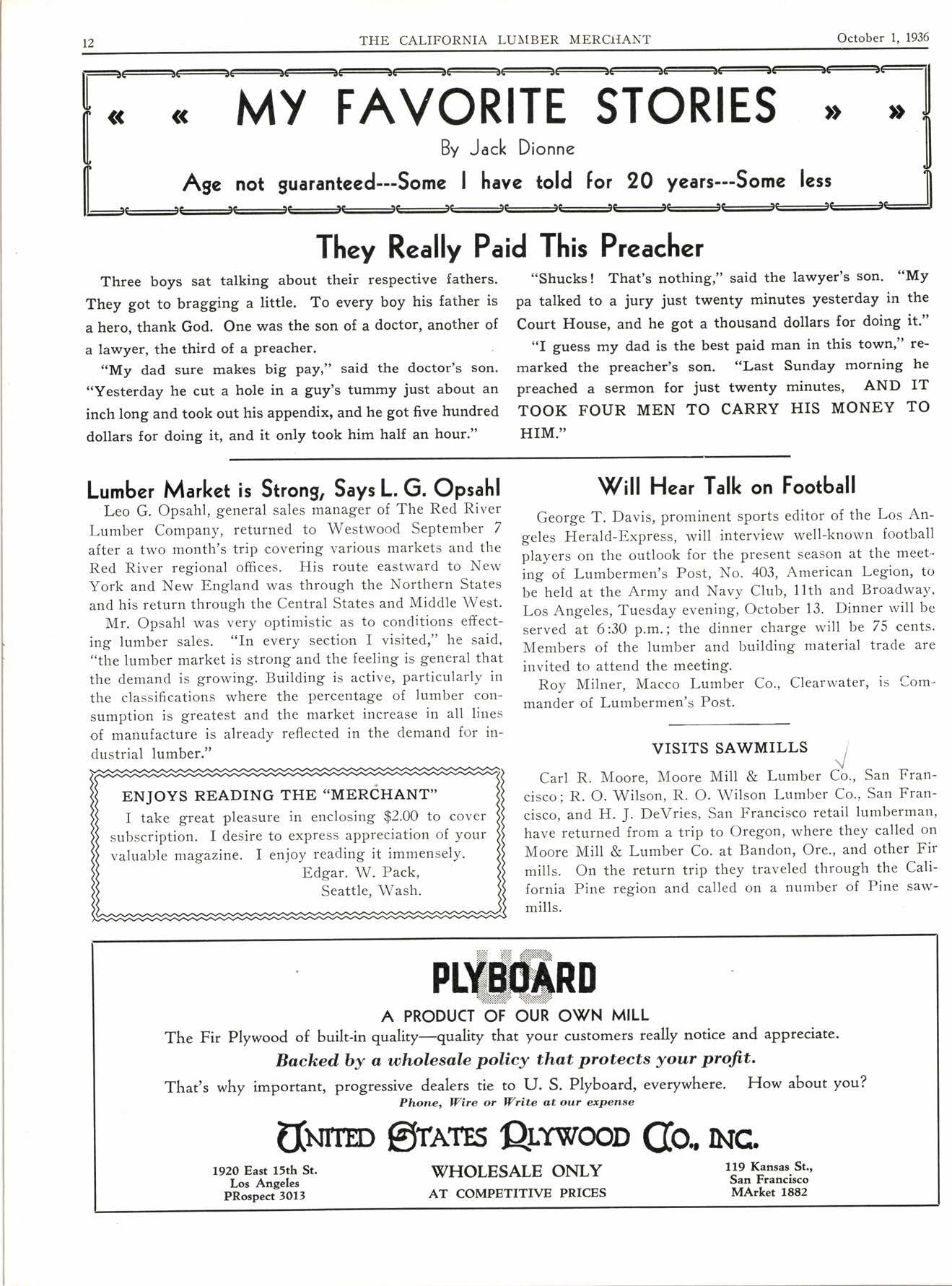
2 minute read
U. S. Mediator Hopes Shipping Tie-up M.y Be Avoided
San Francisco, Sept. 28.-At a late hour this evening announcement was made by Edward F. McGrady, Assistant Secretary of Labor, that some progress has been made in the conference held here yesterday and today by the Pacifi'c Coast committee of the Waterfront Employers' Association and the district executive ,comrnittee of the International Longshoremen's Association, with Mr. McGrady and E. P. Marsh and E. H. Fitzgerald, Labor Department conciliators, in a last minute effort to avoid the threatened waterfront tie-up October 1.
Tentative agreements, he said, had been reached on two points in dispute, with many other points remaining to be dis.cussed. He expressed hope, however, that an agreement would be reached that would result in peace.
Anxious to avert a marine union strike which would tie up the nation's seaports, President Roosevelt announced the appointment of the new Federal maritime commission on September 23. Members of the maritime commission prepared for a conference with President Roosevelt on September 30.
Negotiations between the Waterfront Employers' Asso,ciation and International Longshoremen's Association leading to modifi'cation of the 1934 arbitration award began in San Francisco on August 25. The negotiations ltecame deadlocked due to the refusal of the longshoremen to submit disputed points to arbitration until the question had been put to a referendum vote of the members of the I. L. A., Pacific Coast district. The unions began balloting on September 14, the votes being counted at Seattle, September 18. The longshoremen voted 9i per cent against arbitration of their working agreement dispute with the employers.
Issues whi'ch had not been settled by negotiations include conflicting demands on wag'es, control of hiring, and other modifications of the 1934 award.
Convinced that a complete break with the I. t. A. inevitable, the employers on September 24 announ,ced ,conditions under which longshoremen will be employed when the 1934 award expires on September 30.
At present longshoremen receive 95 cents per hour for straight time and $1.40 for overtime. Under the new ofier, longshoremen will receive $1 for straight time and $1.50 for overtime. The men will work an eight-hour day except on Saturday when straight time will be counted between 8 a.m. and 12 noon. Sundays and recognized holidays will 'count as overtime.
Other stipulations of the offer were:
"1. All hiring will be direct at the piers, until such time as the hiring hallscan be re-established by agreement.
"2. Preference will be given in employment to all men now registered at hiring halls.
"3. All work must be performed as directed, ,consistent with conditions not inimical to health or safety of the employes and to the satisfaction of the employers."
The employers said that the conditions are based snbstantially on the recently negotiated New York agreement. The unions state they will fight for the hiring halls and will refuse to ,report at the docks.
At a conlerence between the Waterfront Employers' Association and the I. L. A. at San Francis'co on Saturday, September 26, the I. L. A. announced it would refuse to consider further negotiations unless the employers agreed to accept a 1S-day extension of present agreements.
To which the employers replied:
"There is no assurance that negotiations could be completed in that time. The employers were willingto agree to a 3Gday extension if the I. L. A. would agree that all proposals of the union and the employers, not settled by agreement, would be submitted to arbitration.
"The f. L. A. pointed outthat arbitration of the employers' proposal has already been rejected.
"The employers requested that both sides immediately proceed to negotiate both day and night in spite of the disagreement relating to the proposed extension in the hope that a settlement be reached. The I. L. A. refused negotiations unless the ,employers agreed to an extension beyond Sept. 30 on the I. L. .\.'s terms."
With midnight, September 30, the "zero hour" when the present agreements expire, heavy cargoes moved into coastal ports the closing days of the month with operators rushirrg loading and unloading operations to clear ships.










